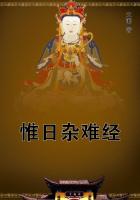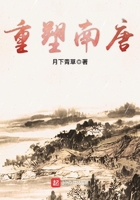They separate, at the session's end, one to smoke cigars about a watering-place, the other to resume the labours of the field beside his peasant family. The first muster of a college class in Scotland is a scene of curious and painful interest; so many lads, fresh from the heather, hang round the stove in cloddish embarrassment, ruffled by the presence of their smarter comrades, and afraid of the sound of their own rustic voices. It was in these early days, I think, that Professor Blackie won the affection of his pupils, putting these uncouth, umbrageous students at their ease with ready human geniality. Thus, at least, we have a healthy democratic atmosphere to breathe in while at work; even when there is no cordiality there is always a juxtaposition of the different classes, and in the competition of study the intellectual power of each is plainly demonstrated to the other. Our tasks ended, we of the North go forth as freemen into the humming, lamplit city. At five o'clock you may see the last of us hiving from the college gates, in the glare of the shop windows, under the green glimmer of the winter sunset. The frost tingles in our blood; no proctor lies in wait to intercept us; till the bell sounds again, we are the masters of the world; and some portion of our lives is always Saturday, LA TREVE DE DIEU.
Nor must we omit the sense of the nature of his country and his country's history gradually growing in the child's mind from story and from observation. A Scottish child hears much of shipwreck, outlying iron skerries, pitiless breakers, and great sea-lights;much of heathery mountains, wild clans, and hunted Covenanters.
Breaths come to him in song of the distant Cheviots and the ring of foraying hoofs. He glories in his hard-fisted forefathers, of the iron girdle and the handful of oat-meal, who rode so swiftly and lived so sparely on their raids. Poverty, ill-luck, enterprise, and constant resolution are the fibres of the legend of his country's history. The heroes and kings of Scotland have been tragically fated; the most marking incidents in Scottish history -Flodden, Darien, or the Forty-five were still either failures or defeats; and the fall of Wallace and the repeated reverses of the Bruce combine with the very smallness of the country to teach rather a moral than a material criterion for life. Britain is altogether small, the mere taproot of her extended empire:
Scotland, again, which alone the Scottish boy adopts in his imagination, is but a little part of that, and avowedly cold, sterile and unpopulous. It is not so for nothing. I once seemed to have perceived in an American boy a greater readiness of sympathy for lands that are great, and rich, and growing, like his own. It proved to be quite otherwise: a mere dumb piece of boyish romance, that I had lacked penetration to divine. But the error serves the purpose of my argument; for I am sure, at least, that the heart of young Scotland will be always touched more nearly by paucity of number and Spartan poverty of life.
So we may argue, and yet the difference is not explained. That Shorter Catechi** which I took as being so typical of Scotland, was yet composed in the city of Westminster. The division of races is more sharply marked within the borders of Scotland itself than between the countries. Galloway and Buchan, Lothian and Lochaber, are like foreign parts; yet you may choose a man from any of them, and, ten to one, he shall prove to have the headmark of a Scot. Acentury and a half ago the Highlander wore a different costume, spoke a different language, worshipped in another church, held different morals, and obeyed a different social constitution from his fellow-countrymen either of the south or north. Even the English, it is recorded, did not loathe the Highlander and the Highland costume as they were loathed by the remainder of the Scotch. Yet the Highlander felt himself a Scot. He would willingly raid into the Scotch lowlands; but his courage failed him at the border, and he regarded England as a perilous, unhomely land. When the Black Watch, after years of foreign service, returned to Scotland, veterans leaped out and kissed the earth at Port Patrick. They had been in Ireland, stationed among men of their own race and language, where they were well liked and treated with affection; but it was the soil of Galloway that they kissed at the extreme end of the hostile lowlands, among a people who did not understand their speech, and who had hated, harried, and hanged them since the dawn of history. Last, and perhaps most curious, the sons of chieftains were often educated on the continent of Europe. They went abroad speaking Gaelic; they returned speaking, not English, but the broad dialect of Scotland. Now, what idea had they in their minds when they thus, in thought, identified themselves with their ancestral enemies? What was the sense in which they were Scotch and not English, or Scotch and not Irish?
Can a bare name be thus influential on the minds and affections of men, and a political aggregation blind them to the nature of facts?
The story of the Austrian Empire would seem to answer, NO; the far more galling business of Ireland clenches the negative from nearer home. Is it common education, common morals, a common language or a common faith, that join men into nations? There were practically none of these in the case we are considering.
The fact remains: in spite of the difference of blood and language, the Lowlander feels himself the sentimental countryman of the Highlander. When they meet abroad, they fall upon each other's necks in spirit; even at home there is a kind of clannish intimacy in their talk. But from his compatriot in the south the Lowlander stands consciously apart. He has had a different training; he obeys different laws; he makes his will in other terms, is otherwise divorced and married; his eyes are not at home in an English landscape or with English houses; his ear continues to remark the English speech; and even though his tongue acquire the Southern knack, he will still have a strong Scotch accent of the mind.















